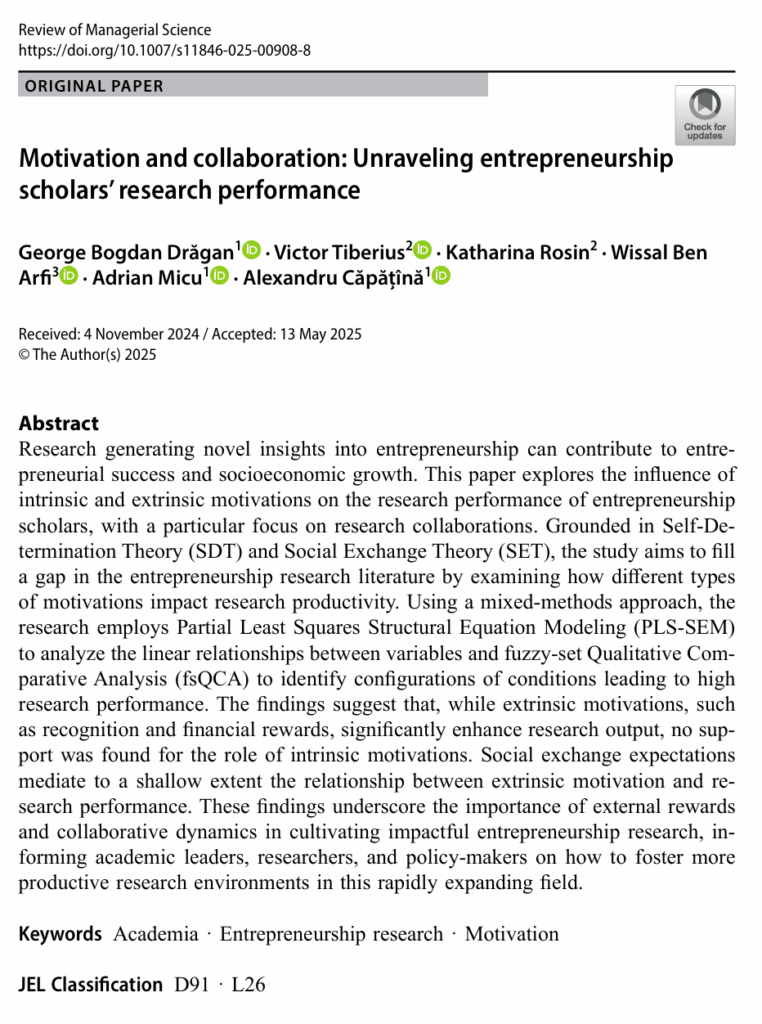University|06-02-2025
Motivation and collaboration as predictors of entrepreneurship researchers‘ performance
Our new paper uncovers unexpected insights into how—and why—entrepreneurship scholars achieve high research output.
Drawing on Self-Determination Theory and Social Exchange Theory, we combined Partial Least Squares Structural Equation Modeling with fuzzy-set Qualitative Comparative Analysis to explore how different motivational forces and collaborative networks shape scholarly performance. The multi-method design allowed us to capture both linear effects and nuanced “recipes” for success in a field where impact is measured in citations, grants, and societal influence.
Without giving away the punch line, the findings suggest that one type of motivation plays a far more decisive role than most conventional wisdom predicts, while the other shows a more muted effect. The study also highlights how expectations within collaborative partnerships subtly shape productivity, adding another layer to the motivation puzzle.
Abstract:
Research generating novel insights into entrepreneurship can contribute to entrepreneurial success and socioeconomic growth. This paper explores the influence of intrinsic and extrinsic motivations on the research performance of entrepreneurship scholars, with a particular focus on research collaborations. Grounded in Self-Determination Theory (SDT) and Social Exchange Theory (SET), the study aims to fill a gap in the entrepreneurship research literature by examining how different types of motivations impact research productivity. Using a mixed-methods approach, the research employs Partial Least Squares Structural Equation Modeling (PLS-SEM) to analyze the linear relationships between variables and fuzzy-set Qualitative Comparative Analysis (fsQCA) to identify configurations of conditions leading to high research performance. The findings suggest that, while extrinsic motivations, such as recognition and financial rewards, significantly enhance research output, no support was found for the role of intrinsic motivations. Social exchange expectations mediate to a shallow extent the relationship between extrinsic motivation and research performance. These findings underscore the importance of external rewards and collaborative dynamics in cultivating impactful entrepreneurship research, informing academic leaders, researchers, and policy-makers on how to foster more productive research environments in this rapidly expanding field.
Reference:
Drăgan, G. B., Tiberius, V., Rosin, K., Ben Arfi, W., Micu, A., & Căpățînă, A. (2025). Motivation and collaboration: Unraveling entrepreneurship scholars’ research performance. Review of Managerial Science, in press. doi:10.1007/s11846-025-00908-8



